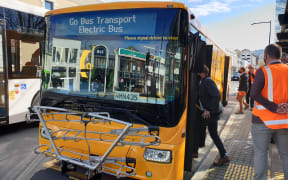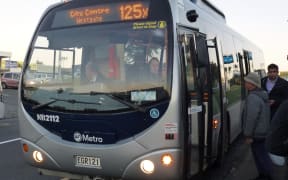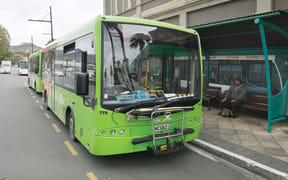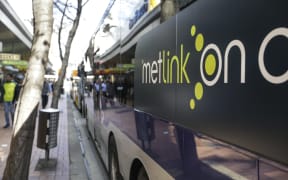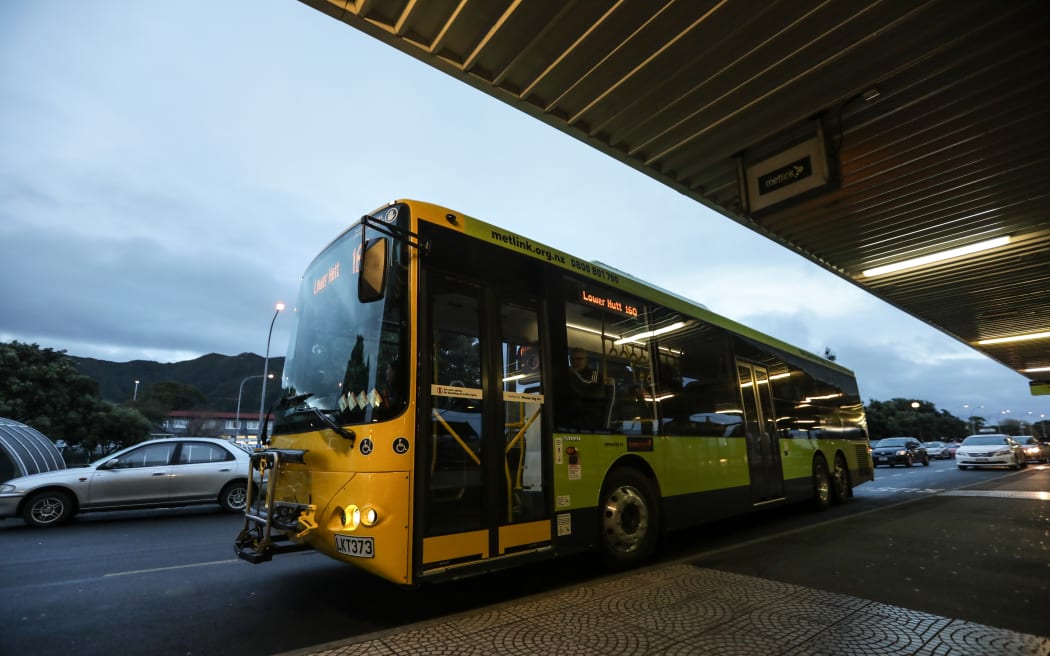
$61 million from this year's Budget will go towards increasing driver wages and improving working conditions across the country. Photo: RNZ / Rebekah Parsons-King
Pay increases for bus drivers will not likely be seen by Wellington bus drivers until mid-next year, despite the announcement of a boost in government funding.
An extra $61 million is set to come from this year's Budget, a move that was announced at the end of last month by Transport Minister Michael Wood.
Metlink chief executive Samantha Gain said the regional council, which owns Wellington's public transport company Metlink, would discuss further supplementing wages in response.
But while the bus network continues to suffer delays and cancellations thanks to a nationwide driver shortage, it could take months of negotiation until drivers see a raise.
"We're about 120 bus drivers short in Wellington," Gain said. "There's not one fix."
Wages, working conditions, the positive promotion of driving as a career and immigration setting changes would all play a part.
"A particular thing that we have advocated for is that bus driving be put in the category of 'skilled migrant', and that hasn't happened so far," Gain said.
The government funding boost, announced last month, would bring pay into line with the median wage.
"Currently, the median wage is just under $28," Gain said. "We know that the median wage is going up to just under $30 in February next year."
Gain said better pay rates would hopefully recoup drivers who enjoyed the job, but left for better money.
"Currently, other parts of the transportation sector actually pay more than bus driving. So we have seen some people moving from bus driving into freight, for example."
But negotiations were needed between the council and operators, unions and Waka Kotahi needed before pay increases could take effect.
The airport bus had been a success, "something that was being asked for by the community", and used by more than just airport travellers - but it had further strained the number of drivers available.
Under normal conditions, Metlink penalised the bus companies they contracted by refusing payment for late or cancelled services. These withheld payments are known as abatements.
During Covid they relaxed the requirements, as staff illness and mandatory isolation periods impacted the contractors, but Gain said from the first of October, abatements were back in place.
Meanwhile, there had been more cancellations on rail recently, which Gain said was due to sickness, not an underlying shortage.
However, Rail and Maritime Transport Union general secretary Todd Valster said the train service was short of passenger operators - the people who clipped tickets and ensured safe entry and exit of carriages - whose roles were changed from full-time to part-time a couple of years ago.
"It's having a huge affect on the safe operation of the trains in our view, if they haven't got the correct manning level," Valster said.
He predicted it would most affect the Hutt Valley and Waikanae lines. Metlink's contracted train operator Transdev was now considering making the roles full time again, he said, but this would take time.
This shortage would curtail how many carriages could be on a train, and could affect whole services if things didn't improve.

